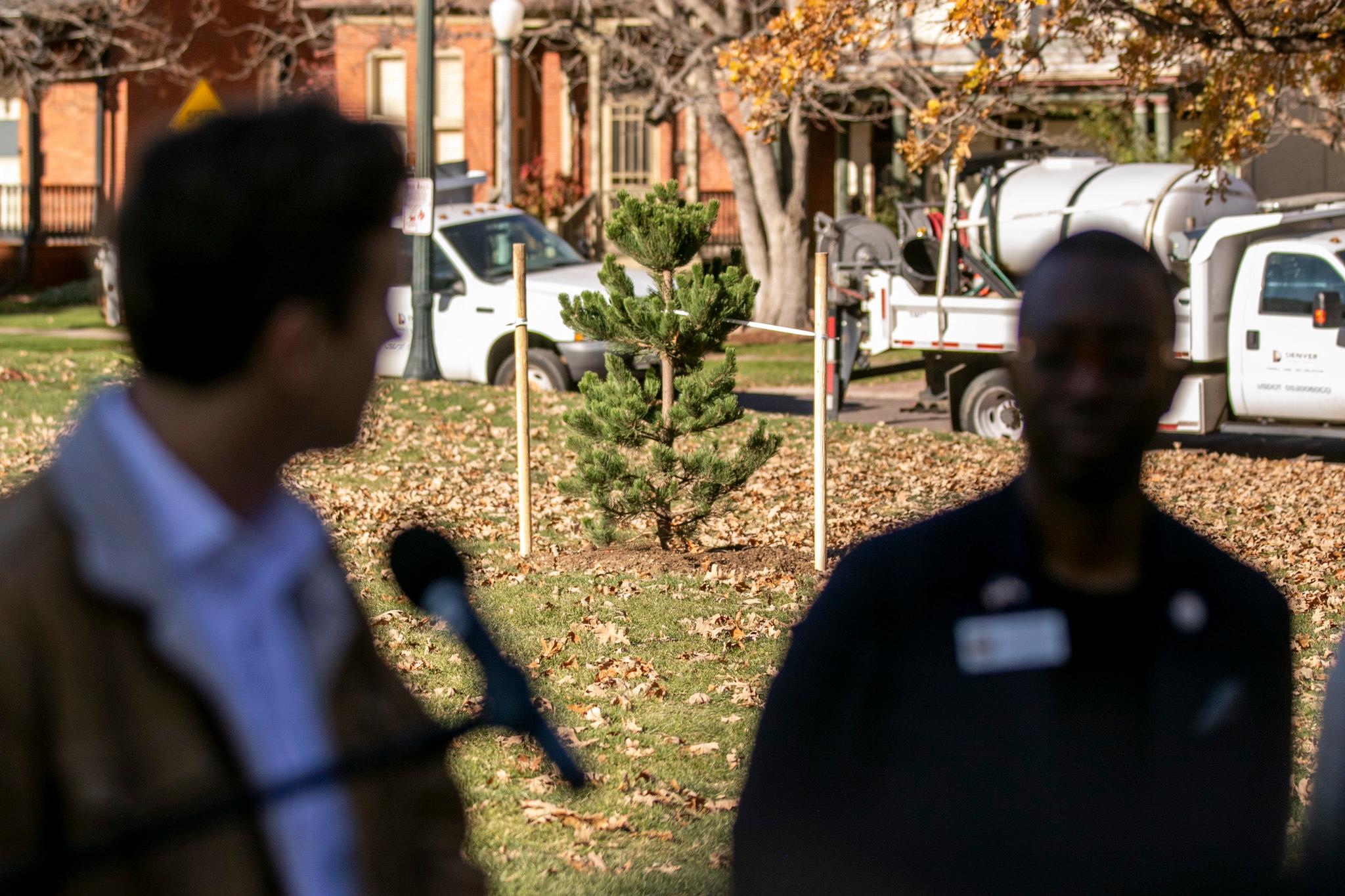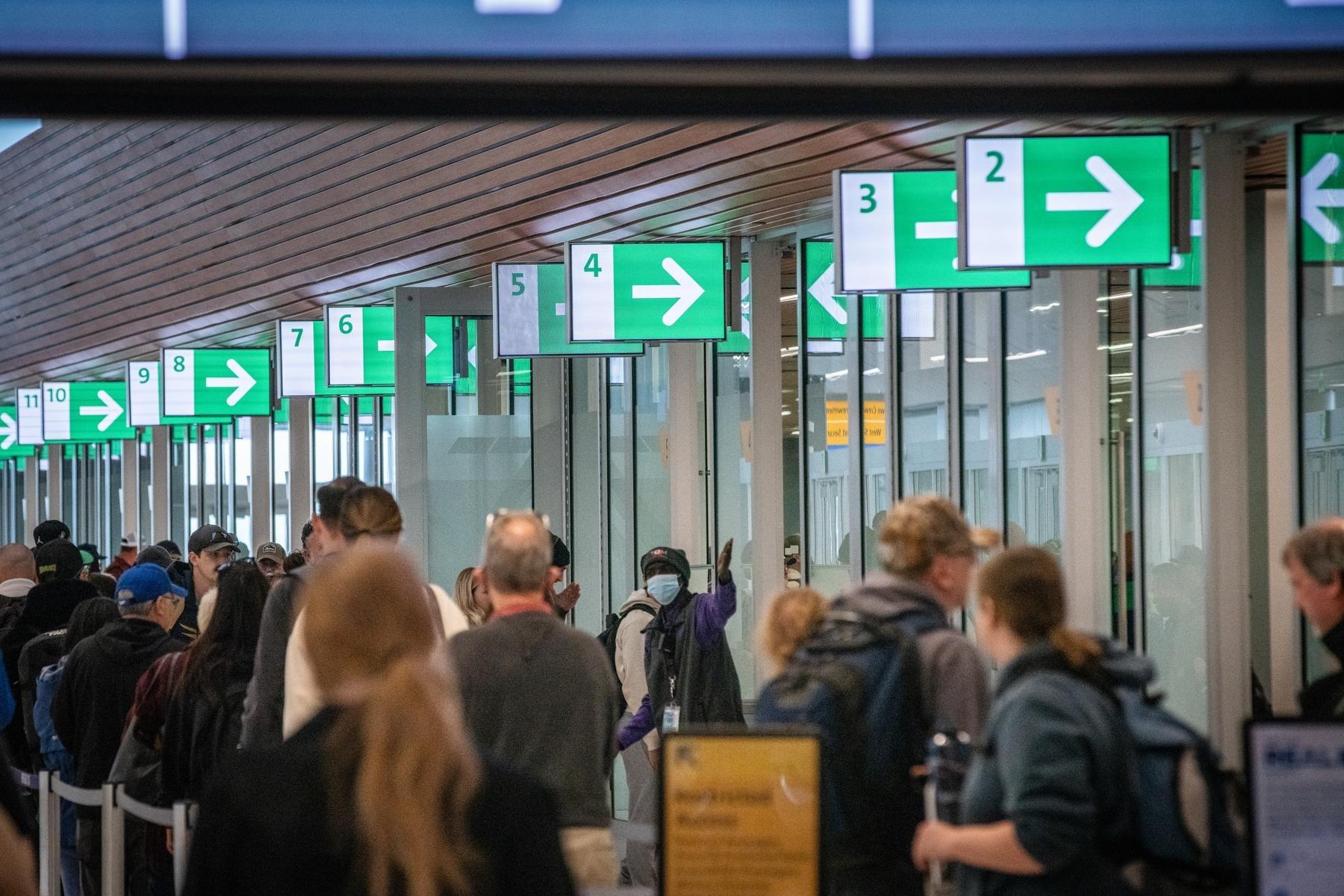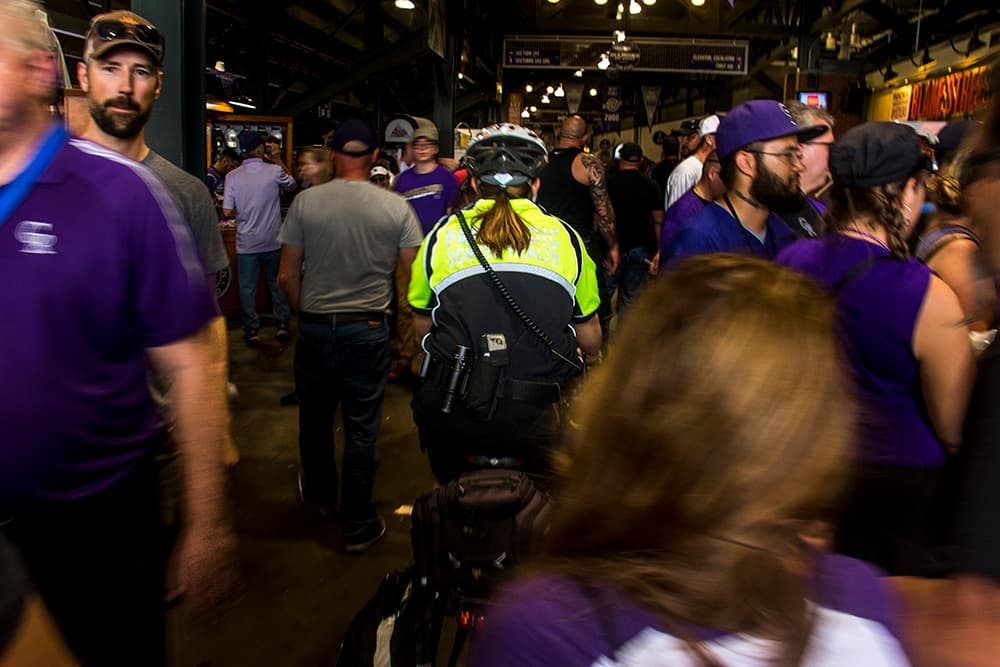
Denver Health's All Terrain Medical unit has been delivering emergency care on bikes for almost three decades now, but that doesn't mean it's gotten easy.
First of all, you have to be able to ride a bike in a place where an ambulance can't go. Like inside Coors Field during a Rockies game, where average attendance was more than 30,000 people per game last year.
Biking in an area like that can get very tight, as the GoPro video below shows.
That's why each member of the team has to be able to bike 3.5 miles and then carry a 40-pound bike up a flight of stairs in under 12 minutes and 16 seconds. Then there's 36 hours of additional training from the International Police Mountain Biking Association.
It's hard, says Paramedic Jeff Baker. The first time he tried to complete the test to join the team, he didn't make it.
"So I was motivated to go buy a bike, have a pannier set put on my bike and then I loaded it down with weight and got myself used to it. Riding a bike with all this weight on the back wheel is completely different," he says.
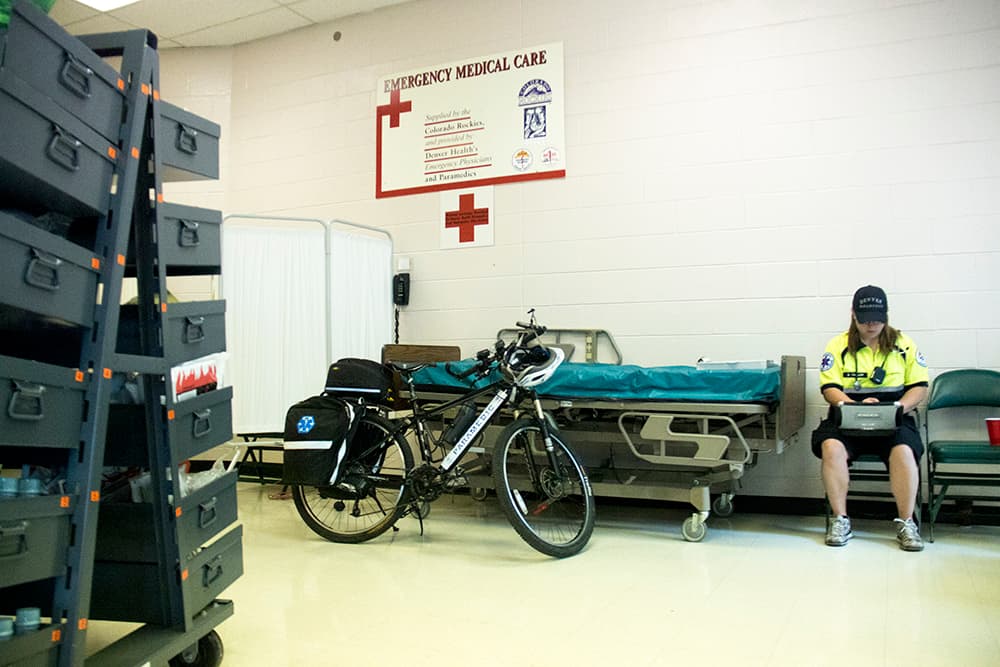
Fellow bike paramedic Shae Taylor adds that as soon as she was hired by Denver Health, one of her goals was to join the unit.
"In the eyes of people here, it's very prestigious," she says. "You see these veterans out there on the bike running calls and just being self-sufficient. It's something to look up to."
The bike team can do just about everything that an ambulance can do, except take someone to the hospital or do cardiac monitoring. They have the ability to administer medications, shock people if they go into cardiac arrest, start IVs, provide oxygen, even deliver babies.
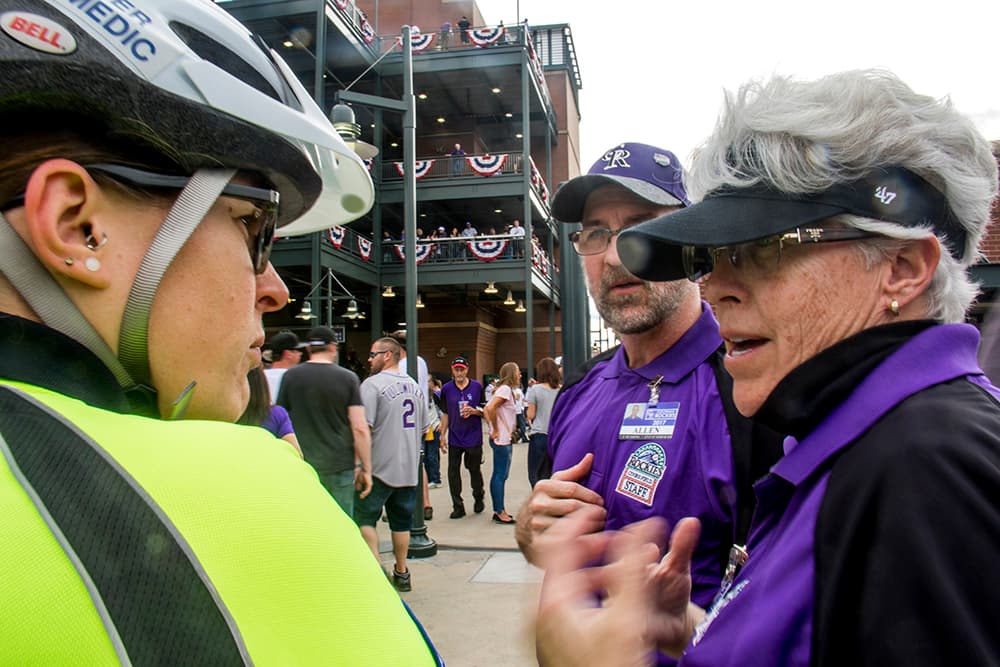
The speed of care is often life-saving, Taylor says. But it's also efficient. If a patient doesn't need to go to the hospital and a bike is able to respond to the call, that's one less car on the road.
"We're just seeing constant demand," Taylor says. "You've got the growing population of Denver and its traffic, plus Denver is becoming a mecca for events. I think that we're just going to continue to grow and improve with what we do."
Denver Health's bike team has been growing for a long time. Officially organized in 1991, Denver has been recognized by the International Police Mountain Biking Association as the first team of its kind, according to Denver Paramedic Division Lt. Jesse Trudel.
Part of what makes Denver different, he says, is having a team of paramedics, not a mix of emergency medical technicians and paramedics. That's what lets them conduct studies for the Department of Defense on things like administering fresh frozen plasma in the field.
For the members of the team, it's a job that keeps them on their toes and not sitting in the back of an ambulance.
"I definitely skip the gym when I have a shift," Shae Taylor says with a laugh.
Editor's note: This post originally referred to Jesse Trudel as a police lieutenant. He is a lieutenant with the Denver Paramedic Division.




